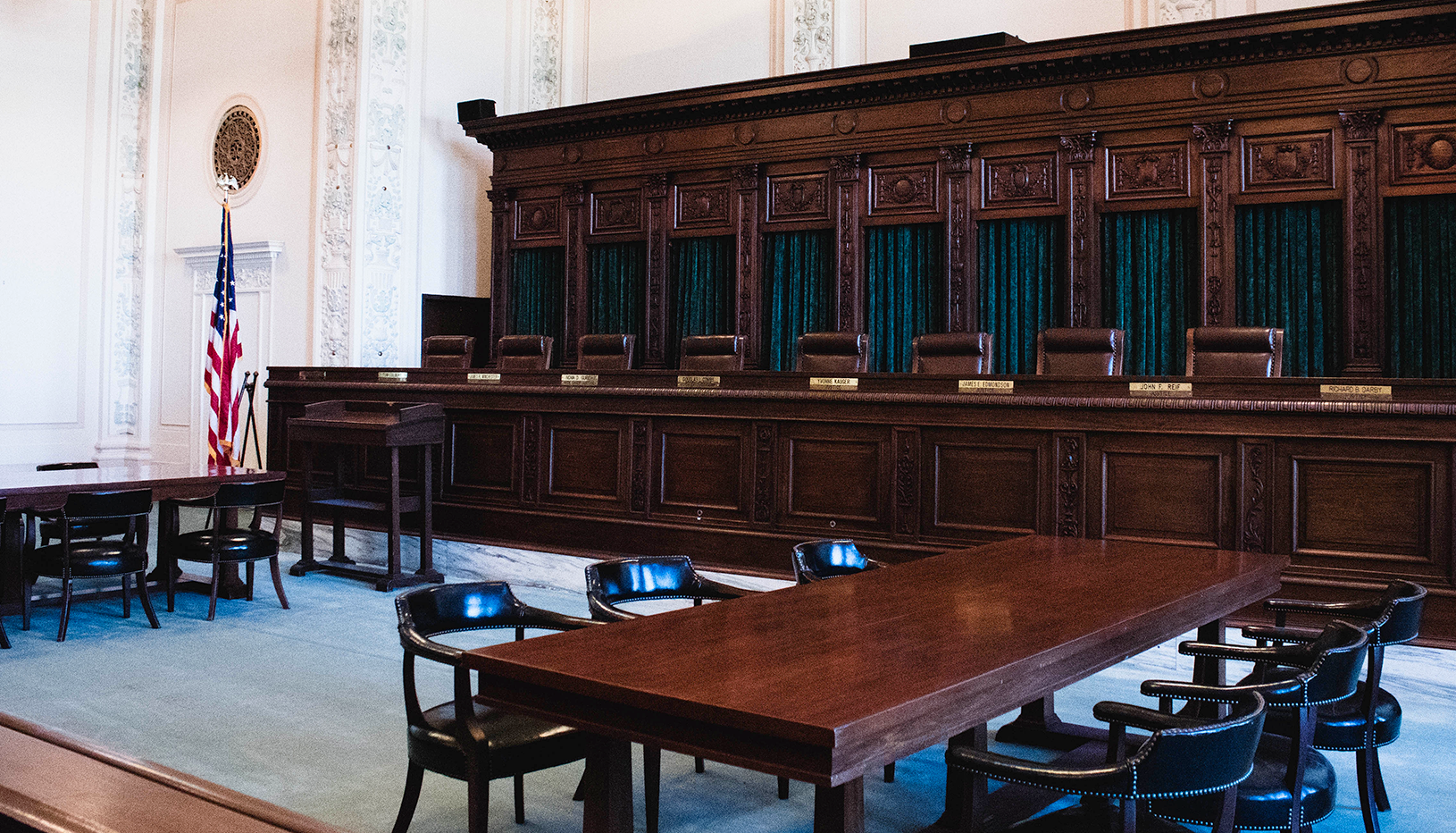In 2022, state lawmakers introduced, and in some instances passed, legislation that would make state courts more political or limit their ability to serve as independent checks on governors or state legislatures. These measures undermine the critical role that state courts play in our democracy to ensure lawmakers do not overstep their authority and to act impartially when vindicating individual rights.
In some of this year’s bills, state lawmakers sought to insulate their actions from judicial review by prohibiting judges from hearing cases challenging the constitutionality of the laws they passed. In others, lawmakers sought to prevent judges from enforcing certain court decisions or to impeach judges who blocked certain laws.
In the lead-up to the Supreme Court’s decision overturning Roe v. Wade, state legislatures targeted judicial powers over abortion. In Oklahoma, for example, lawmakers enacted two anti-abortion bills that were modeled off Texas’s vigilante anti-abortion law, S.B. 8. The bills contain provisions that explicitly prohibit courts in the state from hearing lawsuits to stop the enforcement of those laws.OK-HB-4327-OK-SB-1503 Lawmakers in Arkansas, Alabama, and Missouri considered (but did not pass) similar bills as it became clear that advocates would ask state courts to decide whether state constitutions protect abortion access even if the Supreme Court ruled the federal constitution does not.1
A Brennan Center review of bills considered this year shows that legislators in at least 25 states introduced at least 74 bills that would have politicized or undermined the independence of state courts.* Of these bills, at least five were signed into law across three states (Iowa, Oklahoma, and Wyoming).2 An additional 22 bills advanced in a significant way, either passing favorably out of a committee or subcommittee, receiving a hearing, or passing through one house of the legislature. (Our analysis of legislation that targeted the role or independence of state courts in previous years can be found here.)
In 2022, legislators in at least 25 states considered at least 74 bills targeting state courts, 5 of which have become law in 3 states.
- Thirty-nine bills in 16 states would have either enabled the override of court decisions or prohibited state officials, including judges, from enforcing particular laws or court decisions. Four such bills were enacted.
- Eight bills in five states would have put pressure or restrictions on judicial decision-making or reduced judicial branch resources in response to decisions that displeased the legislature. No such bills were enacted.
- One bill in one state would have changed the judges or courts that hear high-profile cases against the government. No such bill was enacted.
- Seventeen bills in nine states would have injected more politics into how judges are selected. One such bill was enacted.
- Two bills in one state would have shortened judicial term lengths, subjecting judges to more frequent political pressures. No such bills were enacted.
- Seven bills in seven states would have allowed more guns in courthouses, even if courts themselves wanted to prohibit weapons. No such bills were enacted.
In addition, two bills passed in 2021 were referred to the November ballot in West Virginia and Montana. The West Virginia measure, which voters ultimately rejected, would have prohibited state courts from reviewing the legislature’s actions in impeachment proceedings. The Montana measure, which the Montana Supreme Court ultimately blocked from appearing on the ballot, would have had voters elect justices by districts rather than statewide, opening the door to gerrymandering of the high court.
The Supreme Court’s overruling of Roe will likely continue to loom large over state courts and legislative sessions in 2023. In particular, conservative lawmakers are likely to double down on their efforts to gain an advantage in the courts in states such as Kansas and Montana, where justices who have ruled in favor of abortion protections kept their seats despite opposition in the midterms. In fact, in Montana, several bills targeting the state’s judiciary have already been prefiled, including a bill that would, according to its title, “[a]uthorize gubernatorial appointment of Supreme Court Justices.”
The following is an overview of bills introduced at the state level in 2022, broken down by how they might have weakened the independence or power of the judiciary.
*These bills were identified by the Brennan Center through CQ FiscalNote (with support from the Piper Fund) and media reports. One bill was also identified using the National Center for State Courts’ Gavel to Gavel database. Our analysis includes bills introduced in 2022 as well as any bill introduced in 2021 as part of the same legislative session, provided the bill has advanced in some way in 2022. If a bill’s description does not indicate whether the bill has progressed, that is because the relevant legislative session for that bill is still ongoing. Finally, based on recoding, this updated analysis no longer includes one bill that was included in our June 2022 analysis (OH H.J.R. 2).
Endnotes
-
OK-HB-4327-OK-SB-1503
OK H.B. 4327, OK S.B. 1503. -
1
AL H.B. 295, AR H.B. 1118, MO H.B. 1987. -
2
IA H.F. 2481, OK S.B. 523, OK H.B. 4327, OK S.B. 1503, WY S.F. 102.







